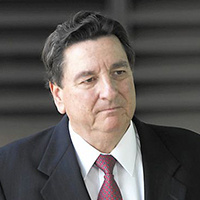 Pocono Lake Estate Lawyers, Pennsylvania
Pocono Lake Estate Lawyers, Pennsylvania
Sponsored Law Firm
-
 x
x

Click For More Info:
-
Levine Law, LLC
22 E Grant St New Castle, PA 16101» view mapEstate and Real Estate Law 3rd Generation Law Firm
Levine Law aims to create the most direct, simple, and common sense approach to achieve the client's desired end result.
800-711-7881
Sponsored Lawyers
1-10 of 15 matches
Criminal, Accident & Injury, Estate, Workers' Compensation
Janet Jackson, born in Scranton Pennsylvania; admitted to bar, 1984, Pennsylvania; Ms Jackson is in practice with her brother, Leo Jackson, with an emphasis in Workers’ Compensation, Criminal Defense and Estate Law. Attorney Jackson has successfully helped many injured workers and wrongfully accused. Do not hesitate to contact Attorney Jackson regarding your needs today. Attorney Jackson is known in the legal community / arena as a fighter and impassioned advocate for her clients and she gets results. Education: King’s College (Bachelor of Arts in Criminal Justice & Government awarded cum laude in May, 1981. President Scholarship recipient & Aquinas Honor Society member) The Dickinson School of Law (JD, 1984) William H. Dodd Award Recipient, June 1984. Member of the Monroe County Bar Association; Northampton County Bar Association; Member of the Pennsylvania and American Bar Associations and American Trial Lawyers Association; Member of the Criminal Rules Committee for the Court of Common Pleas, Monroe County, Pennsylvania.
(more)Accident & Injury, Divorce & Family Law, Estate, Criminal, Business
When you've been injured in an accident that was caused by another's negligence or carelessness, you want to do everything possible to make sure your financial future is safe from outrageous medical bills or lost wages. Similarly, you want to plan your estate to ensure your property, assets, and bank accounts are protected once you pass away. Attorney Nick Sabatine has worked for more than four decades dedicating his life to helping his clients protect what matters most to them. If you need an attorney in Wind Gap, Pennsylvania, that will take your case as seriously as he would his own, turn to Nick.
(more)


 Brian Levine New Castle, PA
Brian Levine New Castle, PA Practice AreasExpertise
Practice AreasExpertise



